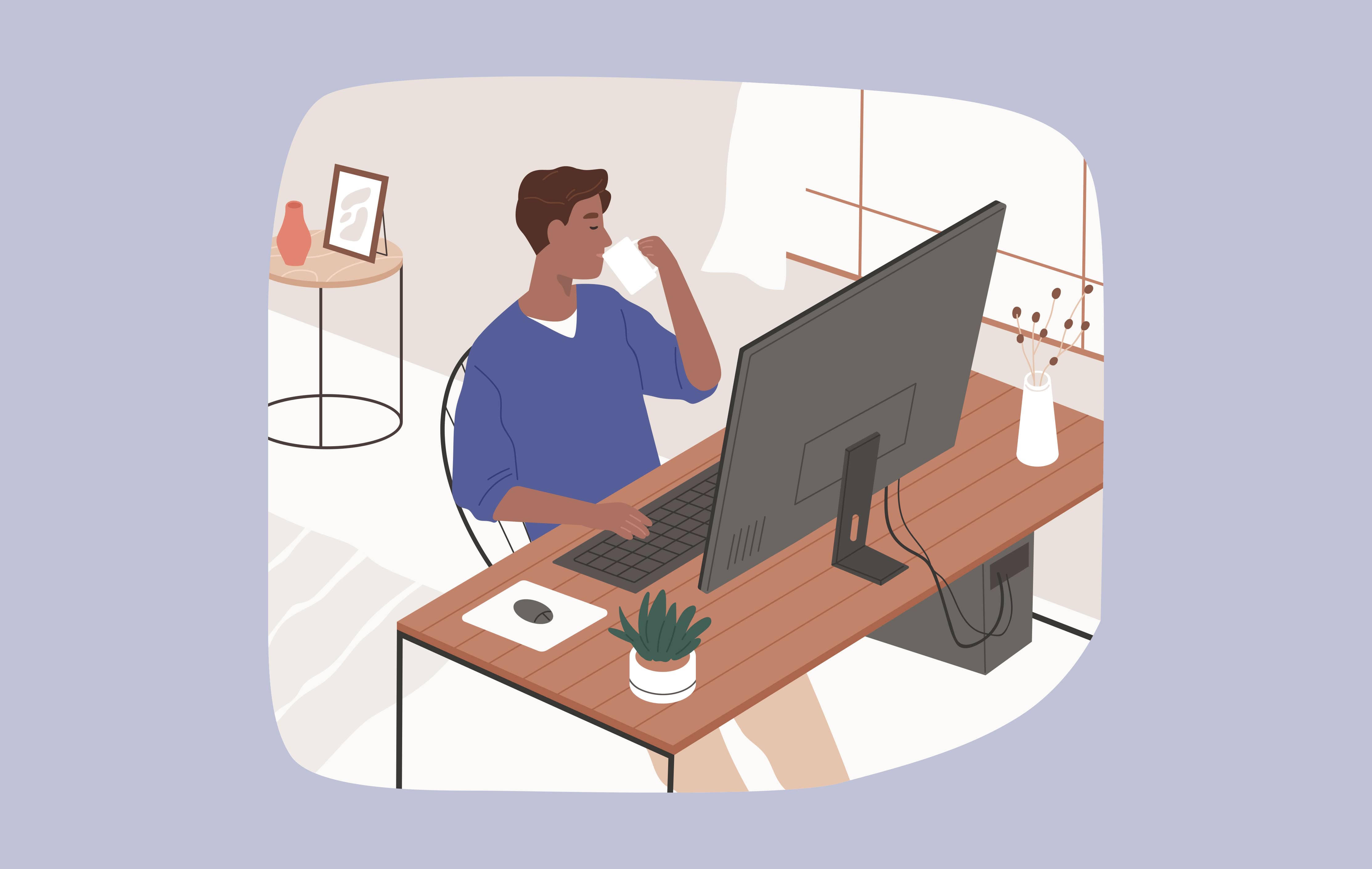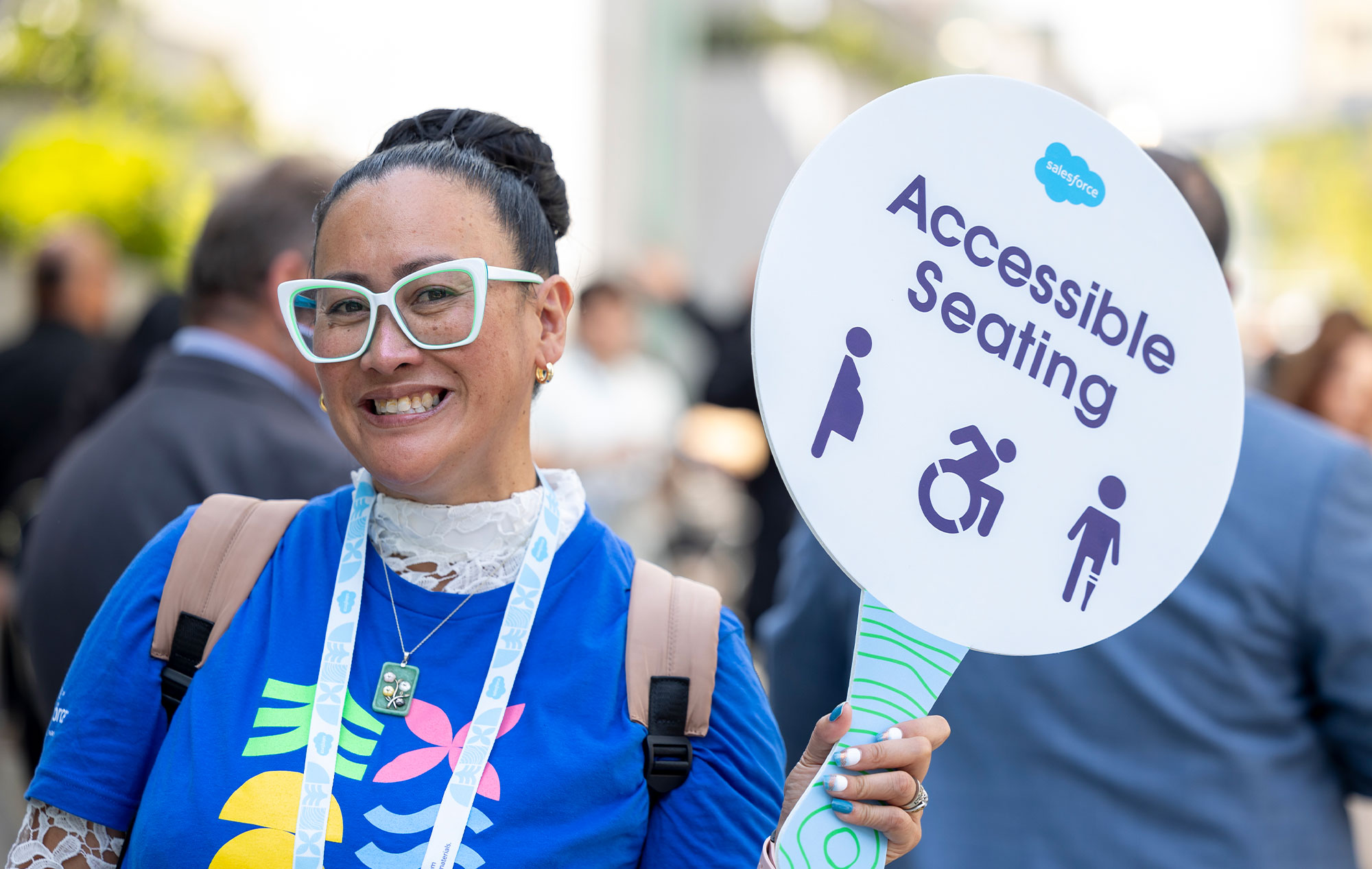Not only is there a lack of representation in business leadership from among the blind and visually impaired community, but in the professional world generally.
Harmful narratives linger, preventing those who are blind or visually impaired (BVI) from becoming gainfully employed or participating fully in a digital world. To address the “digital divide” and employment gap between the disability community and businesses across the world, the Blind Institute of Technology and Salesforce are teaming up with Computers for the Blind as another strategic measure they're creating together.
The Blind Institute of Technology Has a Mission
A nonprofit founded in 2013, the Blind Institute of Technology (BIT) aims to reduce the unemployment rate within the blind and visually impaired community. In addition to preparing them for the professional world, BIT also assists employers with hiring candidates and encouraging businesses to see the benefit in hiring professionals from the BVI community.
Tragically, unemployment rates are disproportionately high within the blind and visually impaired community. According to a 2019 report from The Conversation, only 44.2% of blind and visually impaired people are employed and 10% remain unemployed. This contrasts with 77.2% employment and 4.8% unemployment rates among people without disabilities.
Many barriers to employment still exist for the blind and visually impaired community, and BIT is changing that.
Since Mike Hess founded BIT, his mission has been to identify career opportunities for members of the BVI and broader disability community because their talents are so widely untapped. He earned his associate's degree in information systems and went on to significant roles in several major corporations, even though he is blind.
"My experiences taught me a lot about the lack of understanding, and that's why BIT was created—to help people find jobs," says Hess.
Part of his motivation for establishing BIT, he continues, stems from a perceived lack of disabilities organizations taking a “direct approach to the private sector regarding the true value add that is the broader people with disabilities community, adding value to any organization’s bottom line and culture.”
Fast forward nine years later, and BIT has been retained by organizations including JPMorgan Chase, CVS, Anthem, DaVita, Ball Corporation, Spectrum, Allstate, and Salesforce to help find talent from the professionals with disabilities community.
And the number of collaborators has only multiplied.
Overcoming the Unemployment Gap
Hess is especially enthusiastic about the partnership BIT has been able to develop with Salesforce, a cloud-based, customer relationship management service.
“I truly believe that Salesforce is going to be the first SaaS [software as a service] platform on the planet to facilitate 5,000 or more professionals with disabilities to become gainfully employed,” he explains.
It will require a major shift in professional and corporate cultures, but he is optimistic it can happen. For instance, five years ago, BIT was the first organization to run a blind-person only Salesforce Administration Certification. Six of the seven people involved in that initial cohort found employment.
Salesforce has since created the Office of Accessibility, a workforce initiative for people with disabilities that aligns closely with BIT’s vision for overcoming the unemployment gap. In fact, BIT has become Salesforce’s primary trainer for people with disabilities globally through the BIT Academy.
Expanding the World of IT With Computers for the Blind
This partnership has led to collaboration with other organizations within or adjacent to the blind and visually impaired community.
Made possible by a $100,000 grant from Salesforce, BIT has contracted with Computers for the Blind (CFTB), a nonprofit committed to expanding the world of information technology to those who are blind or visually impaired through training, software, and computer equipment.
Together, they’re building out and administering CFTB’s first Salesforce instance—Sales and Service Cloud, NPSP, custom objects—developing a volunteer portal, and conducting Salesforce user training, including the use of screen readers with Salesforce.
Although CFTB has already built their own customer relationship management system (CRM), it’s expensive when you home grow your own tools, which become costly to maintain and update once tech talent leaves an organization.
“They do not have a commercial, off-the-shelf SaaS solution that is well known and well documented,” Hess points out. “So we’re helping them completely integrate and implement the nonprofit solution pack. And then we're going to help them migrate all the data that they've been storing in their homemade CRM. We've been helping out many nonprofits and businesses across the country, but we're really excited about this one.”
While the added layer of decision makers endemic to working with nonprofits can create some unexpected challenges, Hess is enthusiastic about what they’re accomplishing.
“We love being part of an amazing mission to get affordable tech devices to the blind community,” he shares. “The digital divide is dramatic, and that's what Computers for the Blind is helping address.”
Every Story Matters
There is certainly a great deal of work that needs to be done to increase accessibility for the blind and visually impaired community, as well as making the professional world more inclusive, but ever the optimist, Hess has many reasons to look forward with hope.
“We’re [BIT] working toward a goal of getting 10,000 professionals with disabilities gainfully employed. In fact, Salesforce itself is a game changer because everything needed Salesforce can be accomplished with a blind or visually impaired professional," says Hess.
"Now we just need to encourage companies to give us a chance," he continues. "We're chipping away at this and the more great stories and collaborations we have with InclusionHub, Salesforce, and Fortune 500 companies, the closer we’ll get. Every story matters.”
“This is absolutely a marathon,” he says. “Hopefully, we set the example for other organizations to get over their uncomfortableness around this topic, and they realize that this really is strategically advantageous for them.”
Salesforce is a founding partner of InclusionHub, a resource for digital accessibility, committed to helping businesses prioritize digital inclusion. Visit their a11y website or Blind Institute of Technology to learn more.






Leave a Comment